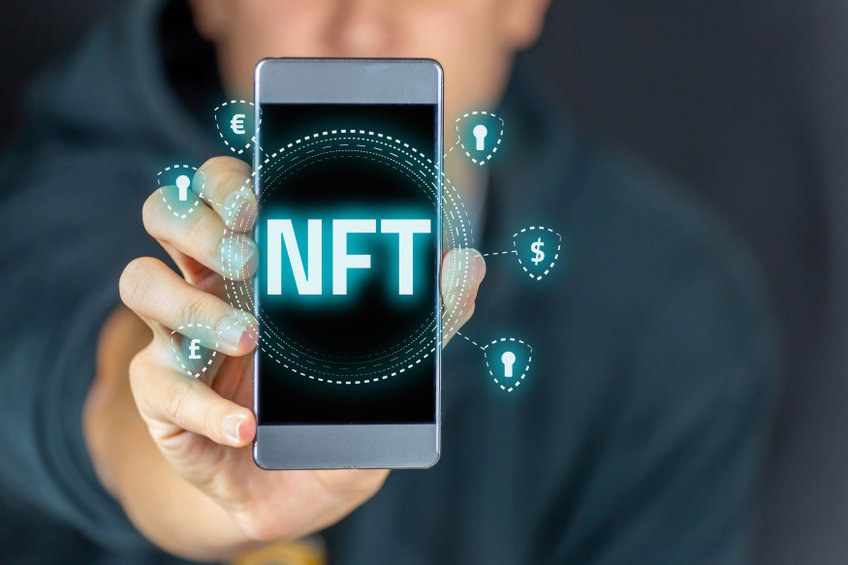An NFT is a non-fungible token. Non-fungible means unique; one-of-a-kind; not mutually interchangeable. A token can be anything digital (music, videos, tweets, etc.), but most of the headline-grabbing, big ticket NFTs are digital representations of art. A unit of currency, such as the U.S. dollar or a Bitcoin is fungible – you can trade a dollar for another dollar, or a Bitcoin for another Bitcoin, and get something virtually indistinguishable from your original. In contrast, NFTs are unique – an individual piece of art can be a singular NFT, or it can be one of many distinctly numbered copies.
Most NFTs are created or “minted” on the Ethereum cryptocurrency blockchain, though many other blockchains are implementing their own versions of NFTs. There are various online marketplaces that have popped up around NFTs. Popular marketplaces include OpenSea, NBA Top Shot, Sorare, and Nifty Gateway.
What Can I Do with NFTs?
If you’re an artist, you can make and sell NFTs of your work around the world. There are features that you can enable that will pay you a percentage of the sale every time your NFT is sold or changes hands. This feature benefits artists whose work may skyrocket in popularity (and value) long after the original sale.
If you’re a consumer, you can buy your favorite artists’ NFTs to financially support them. NFTs usually come with basic ownership and usage rights, such as being able to repost the image. However, it is important to note that the artist can still retain copyright and reproduction rights. You can hold onto your NFTs forever or hold them as temporary investments and sell them later.
Are There Any Practical Uses for NFTs?
There have been some attempts to connect NFTs to real-world objects. For example, Nike recently patented a method, called CryptoKicks, to verify sneakers’ authenticity using an NFT platform. There are games that allow you to use NFTs as items – think outfits, weapons, even plots of land.
NFTs run on energy-demanding blockchains, so there’s a very real possibility that the industry will be stifled by environmental concerns. Other long-term concerns include deteriorating image quality, incompatible file formats, inaccessible websites, and of course, forgotten passwords.








